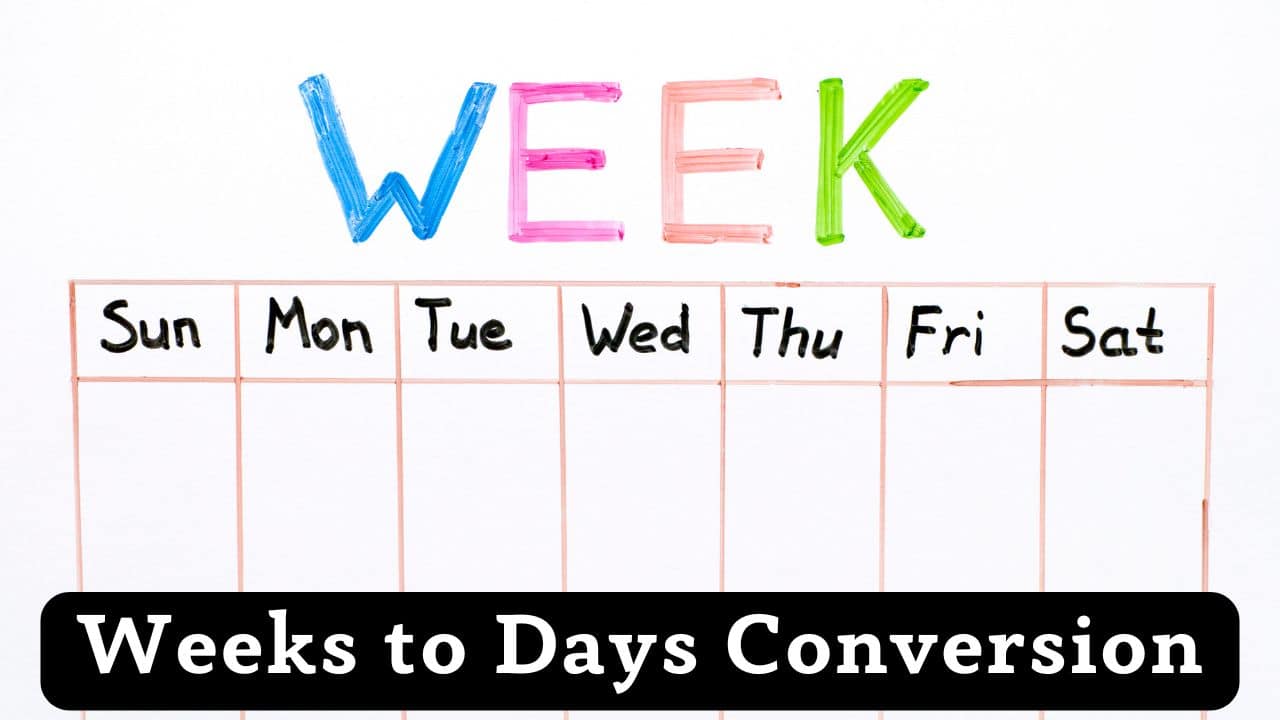Weeks to Days Calculator
Precise time conversion with detailed breakdowns, quick presets, and educational insights

How Many Days in Weeks
There are exactly 7 days in a week. This is a fundamental unit of time measurement used worldwide. Converting between weeks and days is straightforward: multiply weeks by 7 to get days, or divide days by 7 to get weeks.
The Conversion Formula
Days = Weeks × 7
Weeks = Days ÷ 7
This is the simplest time conversion as it’s based on the fixed 7-day week cycle.
Example: 3 weeks × 7 = 21 days, or 14 days ÷ 7 = 2 weeks
Time Relationships
Understand the time relationships:
1 Week = 7 Days = 168 Hours = 10,080 Minutes
1 Day = 24 Hours = 1,440 Minutes = 86,400 Seconds
The 7-day week has been used for thousands of years across many cultures
Quick Reference Table: Weeks to Days
| Weeks | Days | Hours | Common Usage |
|---|---|---|---|
| 1 | 7 | 168 | One week |
| 2 | 14 | 336 | Fortnight |
| 4 | 28 | 672 | One month (approx) |
| 8 | 56 | 1,344 | Two months |
| 12 | 84 | 2,016 | Quarter (3 months) |
| 52 | 364 | 8,736 | One year (approx) |
Frequently Asked Questions
Why are there 7 days in a week?
The 7-day week has ancient origins, possibly related to the seven celestial bodies visible to the naked eye (Sun, Moon, Mars, Mercury, Jupiter, Venus, Saturn). It was adopted by many cultures and became standardized globally.
Is the week-to-day conversion always exact?
Yes, the conversion between weeks and days is always exact because a week is defined as exactly 7 days. Unlike months or years, weeks have a fixed length that never varies.
When is this conversion most useful?
This conversion is useful for project planning, scheduling, vacation planning, fitness programs, medication schedules, and any situation where you need to convert between weekly and daily timeframes.
What’s the difference between business days and calendar days?
Calendar days include all 7 days of the week, while business days typically refer to Monday through Friday (5 days). When converting weeks to business days, multiply by 5 instead of 7.
Interesting Time Facts
Historical Origins: The 7-day week was used by ancient Babylonians around 600 BCE and later adopted by the Romans, eventually spreading worldwide through Christianity and Islam.
Business Planning: Many businesses operate on weekly cycles for scheduling, payroll, and planning. Understanding week-to-day conversions helps in resource allocation and project management.
Health & Fitness: Exercise programs often use weekly cycles (e.g., “workout 3 days per week”), making week-to-day conversions essential for planning fitness routines.
The consistency of the 7-day week makes it one of the most reliable time conversion calculations, unlike months or years which can vary in length.
